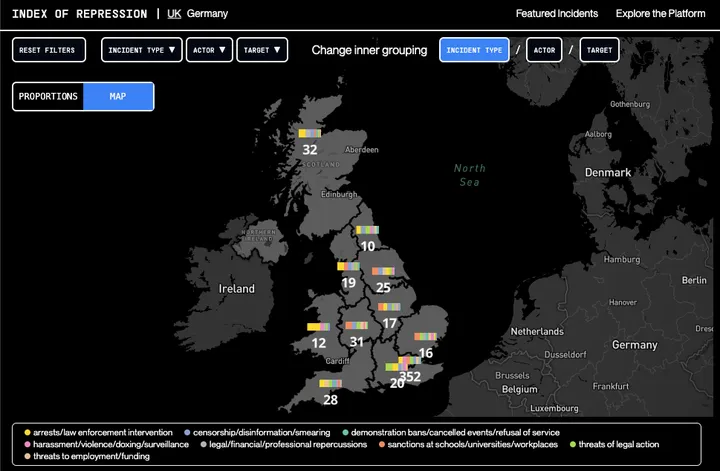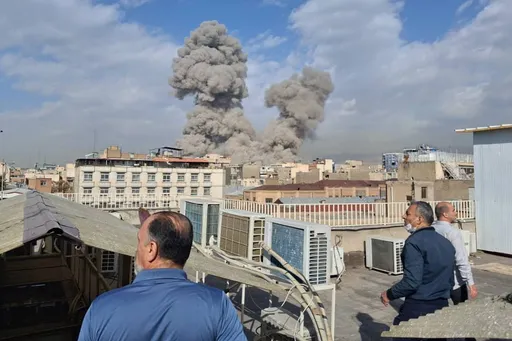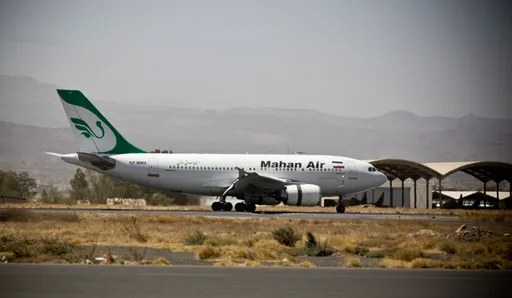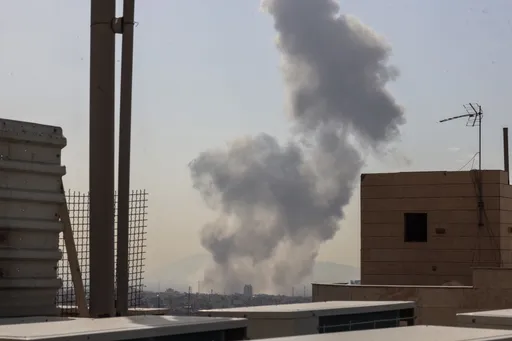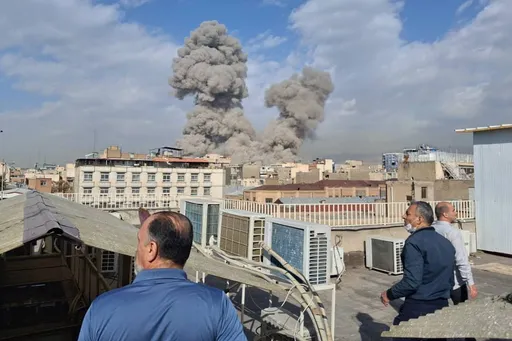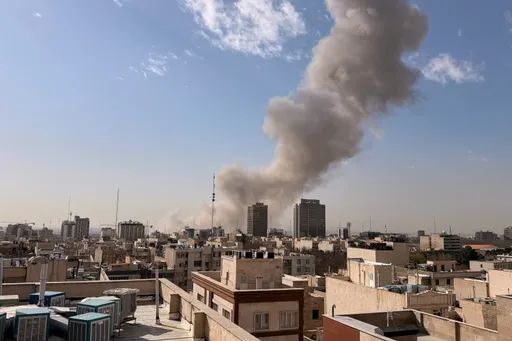Afghanistan's security scenario faces a major challenge as Monday's suicide attack against a foreign entity in its capital city Kabul exposes the Taliban's vulnerabilities.
This time the target was the Russian embassy, one of the few diplomatic posts that have continued to operate in the country since the US withdrawal last year.
Daesh’s Afghanistan branch (Daesh-K) was quick to claim responsibility. The attack killed two employees of the Russian embassy and four Afghan civilians.
Sweden-based security analyst Abdul Sayed, who specialises on terrorism in Afghanistan and Pakistan, says that the motive behind the attack was clear – Daesh wanted to puncture the Taliban spokesperson's recent assurance to Russia and regional actors that Daesh-K posed no threat to its rule.
The details of the attack were published in Daesh’s official news agency Amaq. The suicide bomber was identified as Waqas al Muhajir who detonated his explosives belt at “a gathering of Russian employees and a number of spies and contractors, in addition to members of the Taliban.”
“The group aims to warn both foreign and local political actors through such attacks that Afghanistan, under the control of the Taliban, poses serious threats not only to the people living in the country but also to foreign countries,” Sayed tells TRT World.
Sayed is not the only analyst who has come to such a conclusion.
With the attack, Daesh shows that it “wants to destroy and delegitimise the Taliban,” says a former US official who requested anonymity because of his past association with the US government regarding Afghanistan. “This shows it’s not safe to deal with them,” he tells TRT World.
The common perception amongst several regional experts is that the Taliban has been struggling to make a transition from being an insurgent force to a governing body and attacks like these make that transition harder.
Blocking Taliban’s global recognition
Daesh’s increasing pressure also throws a wrench into the works of Taliban, especially when the so-called Islamic Emirate is trying hard to persuade the global community to release international funds and sign crucial trade deals with them. Ever since coming to power, it has been wooing Russia and China, the two anti-American states, for investments.
Independent security analysts also suggest that Daesh not only wants to spread chaos in Afghanistan but also aims to aggravate the Taliban's financial and political isolation.
The terror group seeks to turn the Taliban rule into a shadow government, which gives a free hand to terror groups like Daesh, experts say.
“It appears to be a Daesh attempt to show that Taliban control is precarious even in the capital, and thus put further barriers between the Taliban and international recognition,” says Ibrahim Moiz, a political analyst on Afghanistan and the Taliban, referring to the recent attack on the Russian embassy.
“One reason for this attack may be to limit the re-introduction of diplomatic missions in Kabul, as the means of isolating the Taliban and denying any inference of legitimacy often associated with the presence of foreign embassies,” says Ioannis Koskinas, a former US military officer stationed in Afghanistan in the past. Koskinas is now a senior fellow at the international security program of New America, a US think-tank.
“The attack certainly marks the beginning of a new era where foreign delegations would have to return to their pre-August 15th security concerns. Let’s hope it doesn’t discourage delegations from coming to the country,” says Obaidullah Baheer, an Afghan political analyst and a lecturer at the American University in Kabul.
The Taliban’s political ability to rule effectively across Afghanistan “is particularly important to regional powers such as Russia and China,” which want to invest in the war-torn country to increase their influence in both Kabul and its surrounding territories across Central Asia, a strategic region, according to Moiz.
As a result, the Taliban’s “ability and willingness to check extremism” promoted by groups like Daesh carries crucial importance. “If the Taliban are unable to provide security, it would be a further barrier to regional countries recognising them,” Moiz tells TRT World.
Why attacking the Russian embassy
“Maybe because Russia is getting heavily involved with investment and trade with the Taliban,” says the former US official, referring to why Daesh-K attacked Moscow’s embassy in Kabul. Moscow has a long problematic history with Afghanistan, which had been occupied by the Soviet Union, the predecessor state to Russia, from 1979 to 1989.
The former official finds similarities between the recent attack on the Russian embassy and a past attack on the Chinese construction company in Kunduz, which killed 11 Chinese workers in 2004 three years after the collapse of the Taliban rule. Unlike the Kabul attack, mysteriously, no group claimed responsibility for the assault on Chinese workers.
The former US official believes that with the Monday attack Daesh might aim to cut the Taliban's bloodline with Russia. “If any assets are released by the US, the Taliban might use them to buy grain from Russia,” he says, which will help Afghanistan under the threat of famine.
“Russia goes around sanctions. Afghanistan gets food,” he says, creating a win-win situation for both sides. Taliban’s Minister of Commerce, Nooruddin Azizi, spent over a week in Moscow and St Petersburg discussing Russian-Afghan trade ties, he says. “Also many meetings” happened with the Russian embassy in Kabul, the former top official adds.
As a result, Russians have become a target for Daesh-K which “can only attack targets that exist. There are no US targets in Afghanistan” anymore, he says. “In general Russia is on their long term target list.”
Growing trade and diplomatic ties between the Taliban and Russia might be one reason for Daesh to target Moscow, but the enmity between the terror group and Russia is not a new thing, going back to their confrontation in Syria, according to Sami Yousafzai, an Afghan journalist with extensive experience on the AfPak region.
“The selection of the target also fits the Daesh-K narrative against Russia as featured in its propaganda. Many books and videos from Daesh-K argue that Russia is a great enemy of the group, as the country fought alongside Iran in Syria and Iraq to crush the armed organisation,” says Iftikhar Firdous, a senior Pakistani investigative journalist with a focus on Afghanistan and militant groups.
“They argue Russia did the same in Afghanistan with Iran by arming the Taliban to destroy Daesh-K strongholds in Nangarhar and Kunar,” Firdous tells TRT World. Believing that Moscow created five republics in the Soviet era to eradicate Islam from the region and recreate its Russian Empire, Daesh perceives Russia “as a great enslaver of Muslims” in Central Asia, he says
“It is interesting that they designated the Russian Embassy a ‘crusader’ outpost,” Koskinas tells TRT World. He also believes that the attack definitely aims to draw the international media’s attention to Daesh-K in Afghanistan. He gives a recent example in which dozens of Taliban members got killed or wounded during a Daesh attack on the group’s “Red Unit” in Kabul last week. But the attack did not make headlines in the Western press, he says.
In recent months, Tajik and Uzbek members of Daesh-K called for new recruits to join the group in Khorasan, a historical region including parts of Iran, Central Asian states and Afghanistan, from which the group’s Afghan branch derived its name, according to Firdous.
In April, after Daesh-K attacked the Uzbek border city of Termez, the group announced that the Central Asian war efforts "had opened for the reconquest of the old Transoxiana (Khorosan) province from the five Central Asian republics,” he says.
The group argues that their fight "is now stretching from Uzbekistan-Tajikistan to Peshawar through Mazar-e-Sharif and Kabul. This signals that the group is linking its different fronts into a sole war,” he adds.




